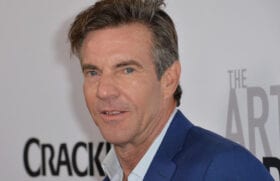With the Women’s World Cup underway and an estimated billion people around the world expected to tune in, are sponsors or even FIFA finally buying in to the sport? While the tournament is being carried in an estimated 187 territories, ESPN’s primary talent for the tournament, Julie Foudy, says that there are still roadblocks in place, even with Sepp Blatter announcing his resignation.
Foudy was, of course, part of the winning 1999 team and has been a proponent for the changes needed and opportunities available to bolster the sport. This year’s tournament will see Foudy headline ESPN’s analysis, news and information coverage of the 2015 Women’s World Cup for programs that include SportsCenter and ESPN FC, while producing previews, reports and commentary for espnW.com. Cynopsis Sports spoke with Foudy about the state of soccer, untapped markets and being courted by other networks.
Foudy on the evolution of women’s soccer: It has obviously taken steps forward. I think the challenge, which isn’t being handled as quickly as I would hope, is that if you look at the ’99 World Cup and across a lot of these countries, they still struggle with funding and infrastructure for a lot of these women’s programs. So, the sponsorship side in the United State is vibrant, and we’ve seen the energy generated from that, but you hear of some of the FIFA sponsors who aren’t activating in Canada, and that just kills me. It is really interesting, because I see the women’s game as a completely untapped frontier that has a tremendous upside and potential for money, which you think would resonate. Unfortunately, we aren’t tapping into it yet.
On barriers: In so many other countries, culturally, the sport isn’t even accepted, so I can see the hesitation there. But the second part of that is that I get frustrated with FIFA’s unwillingness to push these federations to support their women’s programs. That are mandated to give some of their funding to the women’s programs, but there aren’t any checks and balances. There’s no transparency. There are billions of dollars here but FIFA, as the guardian of the game, has shown little initiative to get that done.
On Blatter’s resignation: I am hopeful there will be change. But, right now, if you went to different federations to find someone who would be proactive in the women’s game, there aren’t a lot of people who are making it a priority. I get that it isn’t a big money-maker but you could build it into a wonderful market.
On renewing with ESPN: I decided that this is the best fit for me, having been there from the beginning with espnW. I feel like we are turning the corner and producing great content that is much more integrated into the ESPN fabric and I wanted to stay with that. I wanted to help it grow more, that was the driving factor for me. Obviously, I love calling games and doing events, but I just felt there were too many positives here for me. In addition, I love producing and really see a chance to go do something powerful for television and I wanted to keep doing that.





